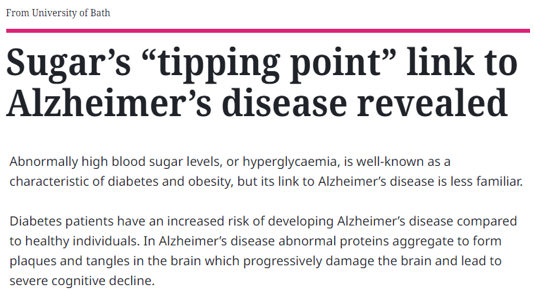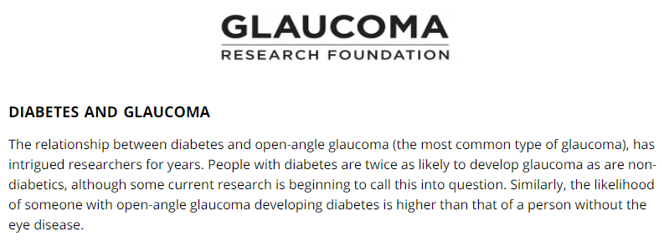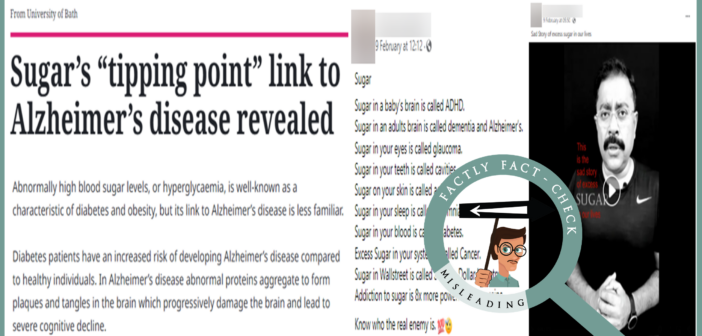Multiple posts (here and here) are being shared on social media linking adverse health conditions with sugar consumption. The posts claim that Sugar is linked to ADHD in infants and conditions like dementia, Alzheimer’s, glaucoma, skin ageing, insomnia, and diabetes in adults. Excess sugar may contribute to cancer, and its addiction is eight times stronger than cocaine. Let’s verify the claim made by these posts.
Claim: Sugar is linked to ADHD in infants and conditions like dementia, Alzheimer’s, glaucoma, skin aging, insomnia, and diabetes in adults. Excess sugar may also contribute to cancer.
Fact: Overconsumption of sugar may cause insomnia, ageing, and cavities. However, these posts oversimplify the connection between sugar and diseases, wrongly suggesting that sugar directly causes conditions like cancer, ADHD, glaucoma, and Alzheimer’s. Hence, the claim made in the post is MISLEADING.
On performing relevant keyword searches, we found that there is no conclusive evidence that shows sugar causes attention deficit hyperactivity disorder (ADHD) in children. There is scant evidence suggesting that sugar intake during the prenatal stage might contribute to hyperactivity symptoms, in children with ADHD. However, there is no direct cause-and-effect connection between the two variables and those without the condition. Studies have indicated that children with ADHD may tend to consume higher amounts of sugar, rather than suggesting that sugar consumption itself causes ADHD.
Compared to individuals without diabetes, those with diabetes face a heightened risk of developing Alzheimer’s disease. In Alzheimer’s, abnormal proteins accumulate to create plaques and tangles in the brain inducing oxidative stress. Also, as per reports while excessive sugar consumption can lead to health issues like obesity and diabetes, there’s no direct evidence of sugar causing dementia or Alzheimer’s.

Further, no evidence shows that sugar consumption makes cancer cells grow faster or causes cancer as sugar is not a carcinogenic substance. However, over-consumption of sugar, particularly added sugars in processed beverages and foods, can contribute to obesity which is an important risk factor for cancer (here and here).

Diabetes affects the body’s sugar processing, marked by insulin resistance, where the body doesn’t produce enough insulin or respond to it effectively. Insulin resistance may cause elevated blood sugar levels. While having sugar in the blood doesn’t necessarily indicate diabetes, elevated blood sugar is a defining characteristic of the disease.
On subsequent research, we found that diabetes-induced glucose imbalances can also harm blood vessels in the eyes. Consequently, diabetes is linked to a higher risk of developing glaucoma. While a study found a link between glucose levels in the eye fluid and blood sugar levels, the idea that having sugar in your eyes causes glaucoma oversimplifies the condition and its causes.

As per studies, high sugar consumption can lead to the formation of advanced glycation end products (AGEs) in the skin. These compounds can contribute to the breakdown of collagen and elastin, proteins responsible for maintaining skin elasticity and firmness, leading to premature ageing. Additionally, studies have found a significant link between higher consumption of added sugars and lower sleep quality. Also, tooth decay happens when acid produced by bacteria in plaque attacks the enamel and dentine of the teeth, leading to the formation of holes or cavities. This acid is generated when sugar interacts with the bacteria in plaque, gradually eroding the enamel and causing tooth decay.
To sum up, there isn’t a direct cause-and-effect link between consuming sugar and diseases like cancer, Alzheimer’s, or ADHD.




